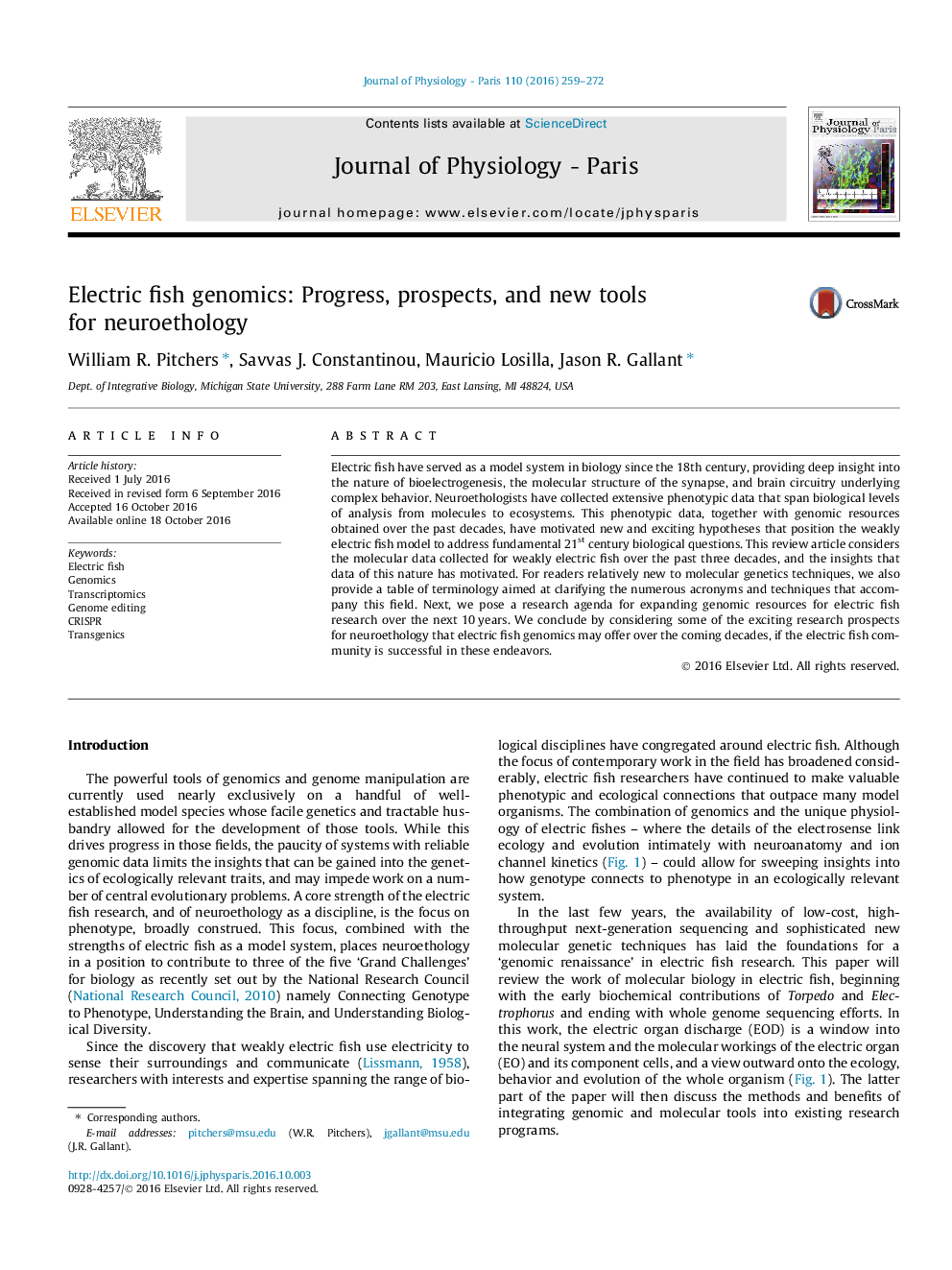| Article ID | Journal | Published Year | Pages | File Type |
|---|---|---|---|---|
| 5593271 | Journal of Physiology-Paris | 2016 | 14 Pages |
Abstract
Electric fish have served as a model system in biology since the 18th century, providing deep insight into the nature of bioelectrogenesis, the molecular structure of the synapse, and brain circuitry underlying complex behavior. Neuroethologists have collected extensive phenotypic data that span biological levels of analysis from molecules to ecosystems. This phenotypic data, together with genomic resources obtained over the past decades, have motivated new and exciting hypotheses that position the weakly electric fish model to address fundamental 21st century biological questions. This review article considers the molecular data collected for weakly electric fish over the past three decades, and the insights that data of this nature has motivated. For readers relatively new to molecular genetics techniques, we also provide a table of terminology aimed at clarifying the numerous acronyms and techniques that accompany this field. Next, we pose a research agenda for expanding genomic resources for electric fish research over the next 10Â years. We conclude by considering some of the exciting research prospects for neuroethology that electric fish genomics may offer over the coming decades, if the electric fish community is successful in these endeavors.
Related Topics
Life Sciences
Biochemistry, Genetics and Molecular Biology
Physiology
Authors
William R. Pitchers, Savvas J. Constantinou, Mauricio Losilla, Jason R. Gallant,
